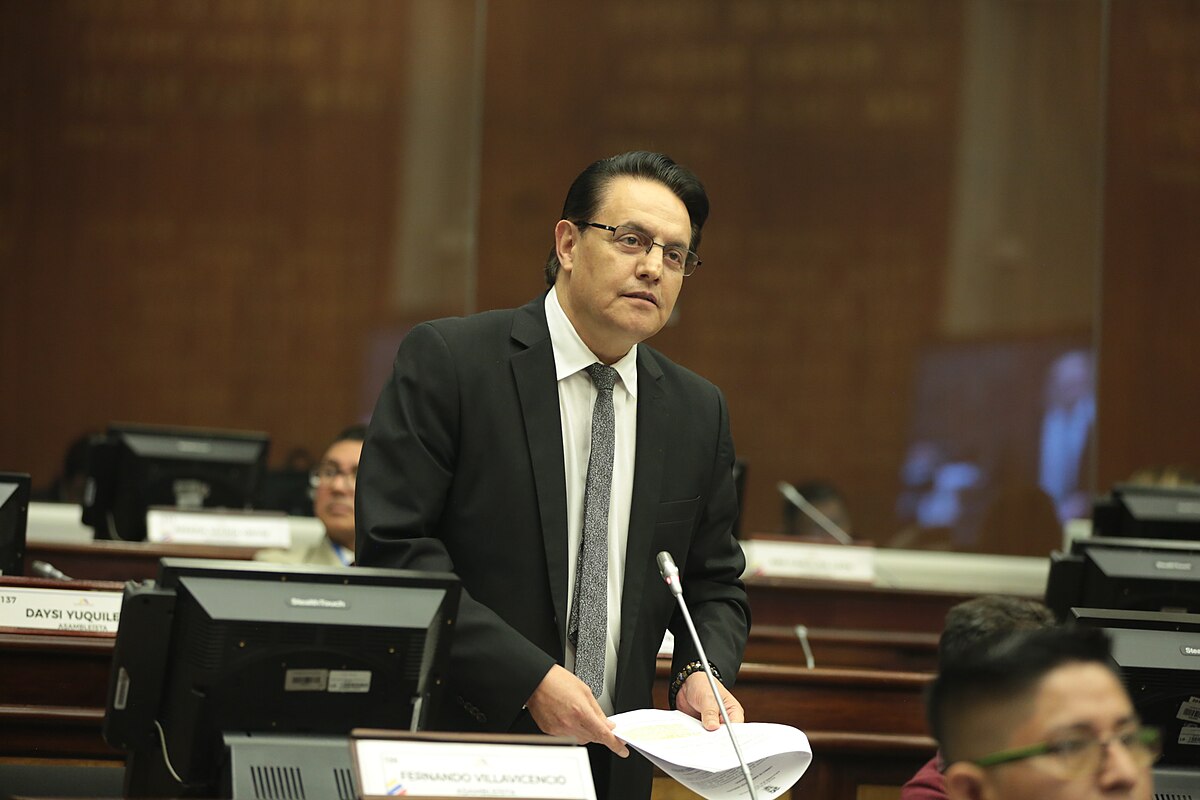In Ecuador, political violence shakes stability

Fernando Villavicencio as pictured in January 2023, a few months before his assassination.
Jonah Carlson - This week, Ecuadorian political leader Pedro Briones, a member of the Revolución Ciudadana party, was fatally shot and killed. The murder comes on the heels of the assassination of presidential nominee Fernando Villavicencio, a member of the opposition Movimiento Construye party, just weeks before a snap election was slated to occur. Regine Garcia Cano examines the extent and repercussions of the political violence in the country in an article in the Associated Press.
The violence currently rocking Ecuador is a testament to the influence of non-state actors in the country. Despite not being states, non-state actors can also be examined through the lens of geopolitical codes, which illustrate how allies and adversaries appear. Recent events in Ecuador show that non-state actors can have great influence on both politics and society. Cano notes that drug trafficking and cartel activity has increased in Ecuador since 2020, which has brought combatting organized crime to the forefront of politics. Fernando Villavicencio, who Cano described as having “a famously tough stance of organized crime,” made himself a clear opponent of the cartel. While Ecuadorian police have declared no motive for the assassination, Villavicencio’s position likely made him a target of the cartel and its growing power. It’s possible that Pedro Briones was perceived as a similar threat to cartel influence, though no motive has yet been established for his murder, either. Regardless of whether or not the string of political deaths in August is orchestrated by the cartel or by independent actors with their own motivations, the violence demonstrates the abilities of non-state actors to capitalize on the period of political instability instigated, in part, by former president Guillermo Lasso dissolving the National Assembly in May. Until snap elections are held, and the government can restabilize, non-state actors like drug cartels may encourage further political violence to try to solidify their own positions in Ecuador.
The motivations of drug cartels can rarely be understood in the context of a single state. Like many other non-state actors, drug cartels typically hold international ambitions, crossing boundaries to achieve maximum profit. Drug trafficking has become a transcontinental problem in the Western hemisphere, affecting policing in Mexico, boundary control in the United States, and individual lives in many other states in the Americas.
Photo source. Asamblea Nacional del Ecuador from QUito, Ecuador, CC BY-SA 2.0

